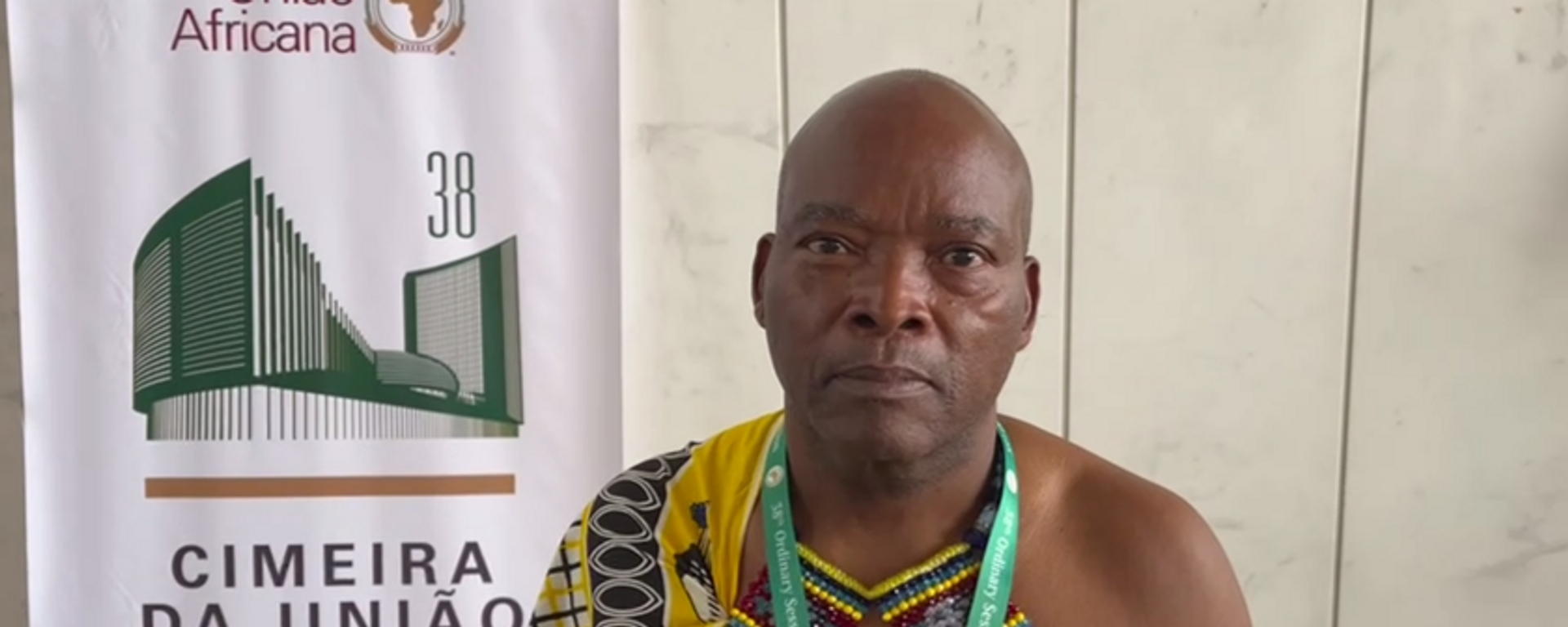https://en.sputniknews.africa/20250214/rejection-of-neocolonialism-and-intra-african-trade-are-pillars-for-resilient-africa-namibian-fm-1070647070.html
Rejection of Neocolonialism and Intra-African Trade Are Pillars for Resilient Africa: Namibian FM
Rejection of Neocolonialism and Intra-African Trade Are Pillars for Resilient Africa: Namibian FM
Sputnik Africa
The AU Executive Council, composed of foreign ministers from its member states, meets in Addis Ababa, Ethiopia, from February 12 to 13, focusing on the theme... 14.02.2025, Sputnik Africa
2025-02-14T11:36+0100
2025-02-14T11:36+0100
2025-02-14T15:25+0100
opinion
africa in details
economy
africa
russia
namibia
brics
african union (au)
neocolonialism
african continental free trade area (afcfta)
https://cdn1.img.sputniknews.africa/img/07e9/02/0e/1070647249_0:0:1280:721_1920x0_80_0_0_410381153ed1b804cb1d5f33e340cc02.jpg
Rejecting neocolonialism and embracing intra-African trade are key to building a resilient Africa, Namibian Foreign Minister Peya Mushelenga told Sputnik Africa.Speaking on the sidelines of the 46th session of the Executive Council of the African Union, which precedes the upcoming 38th AU Summit, Mushelenga emphasized that the tragic history of the slave trade serves as a stark reminder of the need to condemn exploitative systems and prevent their recurrence. This dark chapter in global history underscores the importance of fostering cooperation among African states through trade and investment.One critical avenue for enhancing economic resilience is intra-African trade, particularly via the African Continental Free Trade Area (AfCFTA). By optimizing AfCFTA, African nations can strengthen their economies and reduce dependency on external markets. To fully capitalize on these opportunities, countries should prioritize investing in regional infrastructure development, a point underscored by the FM during his address.Expanding BRICS, an entity composed of nations from the Global South, presents another pathway to strengthening South-South cooperation and bolstering economies in this region. Mushelenga highlighted the potential of BRICS to drive economic development and financial resilience, advocating for expanded membership to include more countries.In addition to intra-African initiatives and BRICS, Mushelenga envisions significant potential in Russia-Africa relations. This collaboration could enable African countries to add value to their natural resources locally, thereby contributing to the continent's broader development trajectory, the top diplomat concluded.
https://en.sputniknews.africa/20250213/africa-has-land-water-peoplenow-we-must-infuse-technology-for-food-sovereignty-au-commissioner-1070632448.html
africa
russia
namibia
Sputnik Africa
feedback@sputniknews.com
+74956456601
MIA „Rossiya Segodnya“
2025
Christina Glazkova
https://cdn1.img.sputniknews.africa/img/07e7/0b/07/1063380906_0:0:673:674_100x100_80_0_0_79628b4d0cd9f29291a57aa13bbf9e7a.jpg
Christina Glazkova
https://cdn1.img.sputniknews.africa/img/07e7/0b/07/1063380906_0:0:673:674_100x100_80_0_0_79628b4d0cd9f29291a57aa13bbf9e7a.jpg
News
en_EN
Sputnik Africa
feedback@sputniknews.com
+74956456601
MIA „Rossiya Segodnya“
Sputnik Africa
feedback@sputniknews.com
+74956456601
MIA „Rossiya Segodnya“
Christina Glazkova
https://cdn1.img.sputniknews.africa/img/07e7/0b/07/1063380906_0:0:673:674_100x100_80_0_0_79628b4d0cd9f29291a57aa13bbf9e7a.jpg
africa in details, economy, africa, russia, namibia, brics, african union (au), neocolonialism, african continental free trade area (afcfta), slavery, technology, summit, brics expansion
africa in details, economy, africa, russia, namibia, brics, african union (au), neocolonialism, african continental free trade area (afcfta), slavery, technology, summit, brics expansion
Rejection of Neocolonialism and Intra-African Trade Are Pillars for Resilient Africa: Namibian FM
11:36 14.02.2025 (Updated: 15:25 14.02.2025) Christina Glazkova
Writer / Editor
Exclusive
The AU Executive Council, composed of foreign ministers from its member states, meets in Addis Ababa, Ethiopia, from February 12 to 13, focusing on the theme "Justice for Africans and People of African Descent through Reparations."
Rejecting neocolonialism and embracing intra-African trade are key to building a resilient Africa, Namibian Foreign Minister
Peya Mushelenga told Sputnik Africa.
Speaking on the sidelines of the 46th session of the Executive Council of the African Union, which precedes the upcoming 38th AU Summit, Mushelenga emphasized that the tragic history of the slave trade serves as a stark reminder of the need to condemn
exploitative systems and prevent their recurrence. This dark chapter in global history underscores the importance of fostering cooperation among African states through trade and investment.
One critical avenue for enhancing economic resilience is intra-African trade, particularly via the African Continental Free Trade Area (AfCFTA). By optimizing
AfCFTA, African nations can strengthen their economies and reduce dependency on external markets. To fully capitalize on these opportunities, countries should prioritize investing in regional infrastructure development, a point underscored by the FM during his address.
Expanding
BRICS, an entity composed of nations from the Global South, presents another pathway to strengthening South-South cooperation and bolstering economies in this region. Mushelenga highlighted the potential of BRICS to drive economic development and financial resilience, advocating for expanded membership to include more countries.
"Then the programs will be put in place, programs of economic development and financial stability to help countries that are not able to manage their economies prudently," the FM explained.
In addition to intra-African initiatives and BRICS, Mushelenga envisions significant potential in
Russia-Africa relations. "My future outlook for Russia-Africa relations [is that] I see a potentially [possibility] of an increase to trade and investment, but also technology transfer," he said.
This collaboration could enable African countries to add value to their natural resources locally, thereby contributing to the continent's broader development trajectory, the top diplomat concluded.



